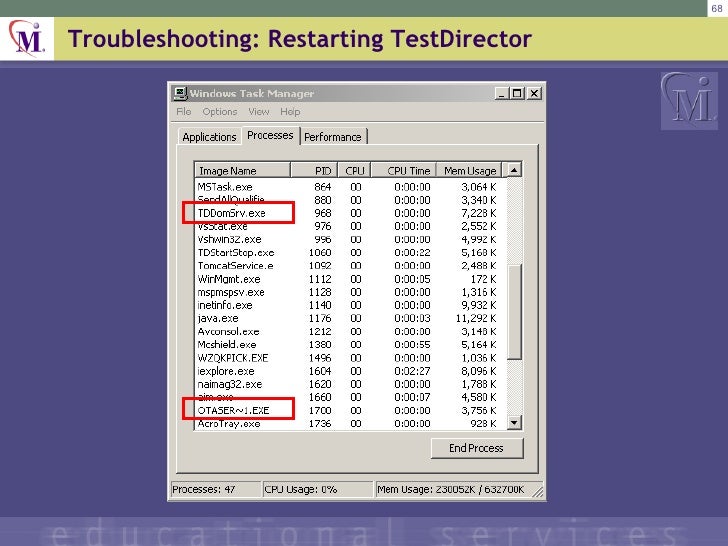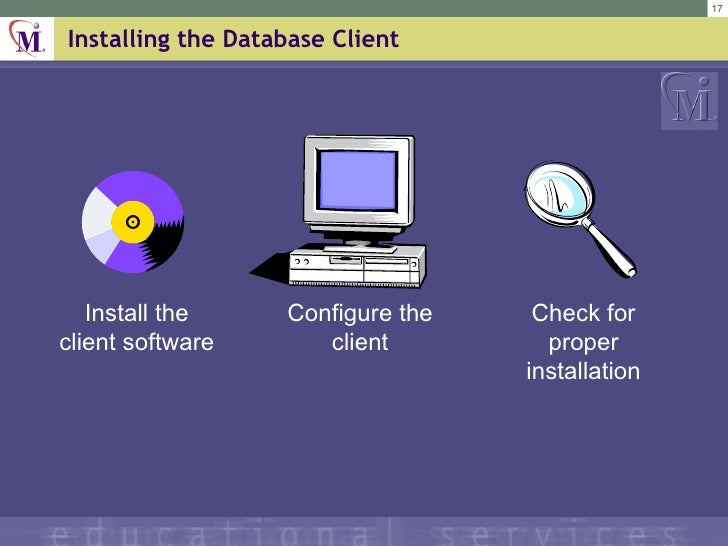Mercury Test Director Software
Mercury Quality Center is a commercial vendor specialising in software testing tools. In particular Gillogley Services is experienced in the Mercury Quality Center - TestDirector and tools. Mercury TestDirector TestDirector is a test management tool which includes:. Requirements Management - Gillogley Services is experienced in the recording and linking of software requirements in TestDirector to ensure traceability of requirements through to test cases and to defects.
Test Plan - Gillogley Services is experienced in the documentation of test plans (IEEE 829 test procedures and test cases) using TestDirector. In the case of manual tests, Gillogley Services is experienced in the realisation of test strategy, test planning as well as test design through the creation of TestDirector test cases. Test Lab - Gillogley Services is experienced in managing the execution of tests including the reporting of progress of testing using Mercury Test Lab.
Mercury Test Director Free Download
Contents. History In 1989, Amnon Landan and Arye Finegold founded Mercury Interactive Corporation. The company was based in California and had offices located around the world. It also had a large R&D facility in Yehud, Israel. On 25 July 2006, Hewlett-Packard announced that it would pay approximately $4.5 billion to acquire Mercury Interactive, offering to pay $52 a share.
On 7 November 2006, Mercury Interactive formally became part of HP. The Mercury Interactive products are now sold. Mercury Interactive legacy products were integrated and sold as part of the portfolio from the. Most of the Mercury Interactive software assets were apportioned to (HPE) when HP split into two companies. In September 2017, HPE completed the sale of most of its software assets, including the legacy Mercury Interactive products to UK-based. Acquisitions From 2000 until its HP acquisition in 2006, Mercury purchased several software companies:. Conduct Software Technologies, Inc., acquired by Mercury Interactive in a share-swap deal worth about $50M, was a privately held software company founded in 1996 by Sharon Azulai, David Barzilai, and Ran Levy.

The company provided network topology visualization products, to pinpoint bottlenecks and isolate the location of network problems both across the network and across the system infrastructure. Its main product was SiteRunner, which used multi-agent technology to pinpoint bottlenecks. As part of Mercury, Conduct alumni started a new project, nicknamed Falcon and later called Prism, that switched focus to monitoring web server traffic. Freshwater Software was a software vendor of a web server monitoring and administration tool called SiteScope. Mercury Interactive acquired Freshwater Software in 2001.
The product is now called software. Performant Inc. Was a software vendor of J2EE diagnostic tools. Mercury Interactive acquired Performant in 2003 for $22.5M.
Kintana Inc. Was a software vendor of IT governance products. Mercury Interactive acquired Kintana in June 2003 for $225M.

Kintana products are now called. Appilog was a software vendor of auto-discovery and application mapping software. Appilog products mapped the relationships among applications and their underlying infrastructure. Mercury Interactive acquired Appilog for $49M in 2004. Appilog products are now part of HP Universal software, an HP Business Service Management offering. BeatBox Technologies (formerly named 'ClickCadence LLC') was a software vendor of real user behavior tracking products.
Mercury Interactive acquired BeatBox in 2005 for approximately $14 million in cash, 'to extend the real user monitoring capabilities of its BTO software and to enhance its performance lifecycle offerings.' BeatBox was incorporated into Mercury's Real User Monitor (RUM) product, which is now part of HP Business Availability Center. Systinet (formerly named IdooX) was a software of registry and enablement products for standard service-oriented. Mercury Interactive acquired Systinet in 2006 for $105M.
Systinet products are now called HP SOA Systinet software. Corporate malfeasance From 4 January 2006 until its acquisition by Hewlett-Packard, Mercury Interactive was traded via the as a result of being delisted from the NASDAQ due to noncompliance with filing requirements. On 3 January 2006, Mercury missed a second deadline for restating its financials, leading to the delisting. Chief Executive Officer Amnon Landan, Chief Financial Officer Douglas Smith, and General Counsel Susan Skaer resigned in November 2005 after a special committee at the company found that they benefited from a program to favorably price option grants.
The committee found that, beginning in 1995, there were 49 instances in which the stated date of a stock option grant was different from the date on which the option appeared to have been granted. In almost every case, the price on the actual date was higher than the price on the stated grant date. A former Chief Financial Officer, Sharlene Abrams, later associated with the financial misreporting, had resigned previously in November 2001. The Chief Executive Officer, Amnon Landan, also was found to have misreported personal stock option exercise dates to increase his profit on transactions three times between 1998 and 2001.
In addition, a $1 million loan to Mr. Landan in 1999—which was repaid—did not appear to have been approved in advance by the Board of Directors and was referred to in some of the company's public filings with the Securities and Exchange Commission, but was not clearly disclosed. In 2007, the SEC filed civil fraud charges against Landan, Smith, Skaer and Abrams.
Without admitting or denying the SEC's allegations, Mercury Interactive agreed to pay a $28 million civil penalty to settle the Commission's charges in 2007. The SEC settled charges against Sharlene Abrams in March 2009. Abrams agreed to pay $2,287,914 in disgorgement, of which $1,498,822 represented the 'in-the-money' benefit from her exercise of backdated option grants, and a $425,000 civil penalty. In September 2009, a federal judge dismissed all charges brought by the SEC against Susan Skaer, who now goes by the name Susan Skaer Tanner.